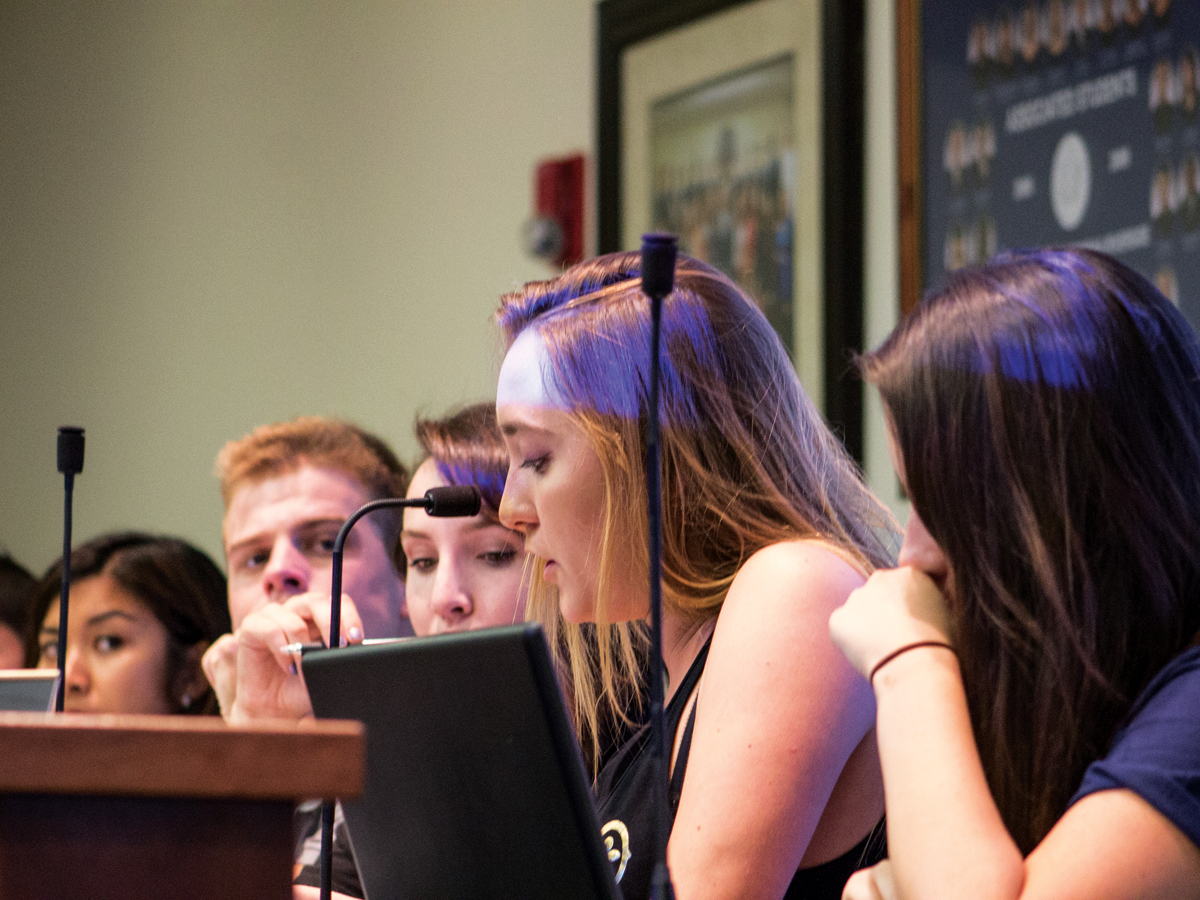
The ASUCR Elections Committee has disqualified the [OUR]Voice party after receiving multiple violations. Following a Monday meeting between ASUCR representatives and campus administration, elections results will be postponed until May 8 to grant candidates time to appeal their violations to the judicial branch.
[OUR]Voice received six strikes granting every candidate four strikes individually. The first three strikes against a party result in one strike for every member, with the next three being counted on an individual basis against every candidate. According to the elections code, three strikes results in disqualification from the elections.
Two members of [OUR]Voice, current personnel director and presidential candidate Ashley Harano as well as ASUCR executive vice president and vice president of internal affairs candidate Michael Ervin, have received a total of five violations, one of which was granted by their prior association with [YOUR]Side, which was found guilty of discrimination in a previous elections case. Neither have commented on the elections committee’s decision.
Brian Jensen, a first-year biology major, questioned the decisions made against [OUR]Voice. “The student body has already made their decision on who they want to be represented by. It’s unfair to now remove them and say they are disqualified … I feel like many of us who have voted for [OUR]Voice representatives haven’t been given a fair choice in this election,” Jensen commented on Facebook.
Vice President of Internal Affairs Fernando Echeverria promised to clear up any misconceptions at today’s meeting. “Elections committee has always had the power to assign strikes, but they did not have explicit authority to listen to appeals,” Echeverria explained.
Any candidates who have received violations have until May 7 to appeal the violations to the three remaining members of the judicial branch: Simon Ho, Michael Deo and Gadiel Lopez. As of press time, Elections Director Stephanie Rose has received two appeals to send to the judicial branch. Justice Simon Ho believes there will be an influx of appeals due to the party’s disqualification.
“As for now the party is expelled, but I am sure that the flood of appeals will begin soon. The appeals filed might or might not make a difference,” Ho stated, adding that the appeals will be reviewed before the elections results are released.
The decision to return appeals to the judicial branch despite its lack of quorum was unanimously made during a joint meeting between Vice Chancellor of Student Affairs Jim Sandoval, UCR General Counselor David Bergquist and the ASUCR executive cabinet, Rose, President Pro Tempore Devin Plazo, Ho, Lopez and Daniel Ojo, an expelled justice.
Ervin questioned the validity of ASUCR Chief Justice Melina Reyes’ and Ojo’s expulsions resulting in the branch’s failure to meet quorum. A point of contention was whether the constitution and judicial procedures contradict each other when charges against justices are brought to the senate.
According to Ervin, only justices can bring charges against another justice according to judicial procedures, which supplement the constitution and bylaws. “I see no contradicting anything in the constitution, it’s just narrowing the application of it,” Ervin explained.
Vice President of External Affairs Abraham Galvan, however, believed that interpretation could undermine the system of checks and balances. “That gives (the judicial branch) the authority to abide by matters of their own removal, which will obviously be a conflict.”
While all ASUCR members agreed that the executive order by President Nafi Karim was constitutional, Rose questioned the validity of a meeting held by Ojo — who was temporarily reinstated by Karim’s executive order — and the remaining justices, to declare the senate’s emergency meeting to overturn Karim’s executive order unconstitutional before it occurred.
Another result of the compromise is a third-party review, which will investigate the constitutionality of Ojo’s and Reyes’ initial removal. As of press time, the review does not have a solid date, but the agreement suggests that it should take place prior to May 30.








